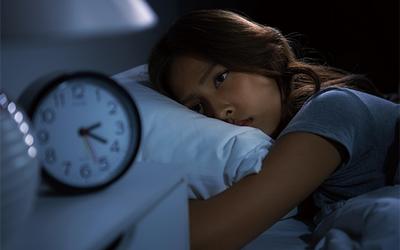With an aging society, the prevalence of dementia also increases. In the case of “Alzheimer’s disease”, one of the representative diseases of dementia, abnormal amyloid proteins are known to be deposited in the brain, causing brain damage and cognitive dysfunction. There are several risk factors that cause “Alzheimer’s disease”, such as age and aging, brain infarction, diabetes, high blood pressure, hyperlipidemia, cardiovascular disease, smoking, alcohol, family history, brain damage, etc. It has been shown to increase the risk of dementia.
▶ Sleep disturbances can cause dementia
For humans, sleep plays a role in conserving energy, restoring the body, consolidating memories into long-term memories, and maintaining various functions for life activities in the body. Sleep is important for memory retention because, during various activities throughout the day, memories are recorded and temporarily stored in the hippocampus of the brain, and then transferred to the cerebral cortex as long-term memories during deep night sleep. According to the International Journal of Nanomedicine, the “Glymphatic System” was first discovered in the brain in 2012 and has been confirmed to free the brain.
Han Su-hyeon, professor of neurology at Chung-Ang University Hospital, said: “In Alzheimer’s dementia, various abnormal proteins accumulate in the brain and the brain’s glyph system cleans these proteins. most important thing”. He said.
In fact, several epidemiological studies have revealed that there is a difference in cognitive function between the sleeping group and the sleepless group. According to the Alzheimer Dis Assoc Disord study of women aged 70 to 81, those who slept less than 5 hours had lower cognitive functions, including memory and attention, compared to those who slept for more than 7 hours. , the overall cognitive function score was lower even though there were symptoms of insomnia such as difficulty waking up, staying asleep, or sleeping regularly.
|
|
▶ Proteins are deposited in the brain and reduce cognitive function
In fact, there is also a study that confirmed that amyloid protein deposition increases in brain PET-CT when sleeping for less than 6 hours. Sleep disturbances can cause dementia, so developing a healthy sleep habit is very important. For healthy sleep habits, it is necessary to find the exact cause of sleep disturbances. Real causes of sleep disturbances range from simple insomnia to obstructive sleep apnea, restless legs syndrome, periodic limb movement disorder, from circadian sleep disorder and REM sleep behavioral disorder. Therefore, it is necessary to find the root cause and treat it through a specialist.
To get a good night’s sleep, you need to balance a high need for sleep, adequate sleep times, and low arousal levels into your regular circadian rhythm. It is best to lead a regular life, get plenty of sunlight during the day and not worry too much about deliberately trying to sleep to control arousal state and relax the body through deep breathing before going to bed and stop thinking. In addition, it is important to regulate the relationship between sleep and the stimulating conditions that control sleep, such as bedtime, bedtime, and bedroom, using the bed or bedroom only as a sleeping space and engaging in activities that they interfere with sleeping outside the bedroom. Go to bed only when sleepy, never lie down when tired, get out of bed and come back when sleepy if you can’t sleep, and wake up at the same time every day, regardless of your sleep time.
The longer you lie down without falling asleep, the lower your sleep efficiency and the harder it is to fall asleep. The goal of “sleep restriction therapy” is to increase sleep efficiency by artificially inducing mild sleep deprivation. It is a treatment that increases sleep pressure by prolonging the waking time and is a method to sleep better by improving sleep.
“Relaxation therapy,” where you inhale for 5 seconds before going to bed and exhale for 5 seconds, can also help you sleep. When you breathe deeply, the activity of the parasympathetic nervous system increases, giving the body a sense of stability.
Professor Han said: “‘Cognitive-behavioral therapy’, in which patients and therapists consult repeatedly about sleep, correcting sleep habits or misconceptions that accompany chronic insomnia and increasing understanding of sleep, is the most preferred treatment for chronic insomnia. the effect is good, you can cut down on the sleeping pills you are taking and stop taking them. “He said:” Dysfunctional erroneous thoughts about sleep can actually make it harder to sleep. You need to check and correct. automatic thinking about anxiety caused by revealing health and psychological reasons “.
He continued: “Taking an appropriate sleeping pill may be helpful for temporary insomnia, but as it does not treat the cause of the insomnia, its effectiveness may be limited. You need to take it correctly and you need to see a sleep medicine specialist. before taking it.
[박지훈 기자]
[본 기사는 매경LUXMEN 제145호 (2022년 10월) 기사입니다]
[ⓒ 매일경제 & mk.co.kr, 무단전재 및 재배포 금지]
The categories in this article follow the media classification.
The category to which the article belongs is classified by the press.
Journalists can classify an article in more than one category.

